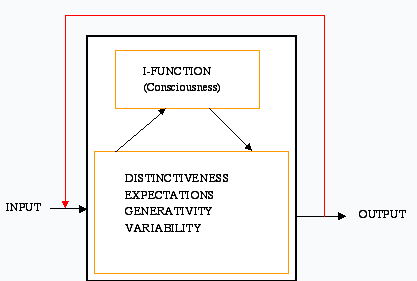Neurobiology and Behavior 2003
 
| Welcome to the home page of Biology 202 at Bryn Mawr
College. Pleased to have you here. I'm looking forward to an interesting,
enjoyable, productive semester of "getting it
progressively less wrong". You too, I hope. Let's have some fun, and see what we can make out of it together. For
everyone.
|
|
|

|
Some course starting points:
From literature - Emily Dickinson
(1830-1886):
The Brain - is wider than the Sky -
For - put them side by side -
The one the other will contain
With ease - and You - beside-
The Brain is deeper than the sea -
For - hold them - Blue to Bue -
The one the other will absorb -
As sponges - Buckets - do
The Brain is just the weight of God -
For - Heft them - Pound for Pound -
And they will differ - if they do -
As syllable from Sound -
| |
And from history:
Course announcements
Browse around. Get a sense of what's here, and how it does (or doesn't) relate to
things you might be interested in. Think about what you think you know about brain
and behavior, and why, and what puzzles you, and why. And expect to be wrong, over
and over again. That's the best starting place ... for any kind of scientific
inquiry.
29 April
Second web papers available
Have emailed roughly half of class, remainder by end of week.
Final web papers due
- Seniors: 5 pm, Friday, 9 May
- Others: 5 pm, Friday, 16 May
Please make one final visit to course forum area.
Reread your thoughts in week 1 about the brain-behavior assertion.
Write about how they have (or have not) changed and why.
****** On-line discussion: The Place of the US in the World Community *******
The Man Who Mistook His Wife for a Deer - NY Times Magazine, 2 February, 2003
first noticed by Andy
Unspeakable Conversations - NY Times Magazine, 16 February, 2003
Not Just Genes: Moving Beyond Nature vs Nurture - NY Times, Science Times, 25 February, 2003
Forum Archive
- Forum 1
If you currently accept the idea that there isn't anything to behavior except the brain, explain why. If you don't or are fence-sitting, explain why.
- Forum 2
Different organisms behave sort of the same but sort of differently; their nervous systems are sort of the same but sort of different; their nervous systems look more and more similar at smaller and smaller scales ... does this make sense? does it make you think differently about the nervous system? about behavior? what new questions/issues does it raise?
- Forum 3
Have a look back at our current "model" of the nervous system. That model seems to be able to account reasonably well for two aspects of the behavior of quadriplegics (Christopher Reeves, for example): - pinching the toe leads to food withdrawal, and
- when verbally asked to move her/his foot a quadriplegic says she/he can't
Two additional relevant observations are: - the quadriplegic reports an inability to move the foot at all
- the quadriplegic reports no experience of having the foot pinched.
Can we make sense of these additional observations using the current model? If not, what modifications to it might make it less wrong?
-
Forum 4
This week we introduced the idea that somewhere inside the nervous system is a smaller box that we called the "I-function". Is this a well-founded concept, in terms of observations? Is it a useful one, in terms of suggesting approachable new questons about the nervous system? about behavior? About the relation between the two?
-
Forum 5
Forum conversation this week was triggered by the first posting, raising questions in a variety of contexts about the existence, meaning, and significance of "personal responsibility".
-
Forum 6
On action potentials and mental "illness"
-
Forum 7
We've pretty much got straight the fundamental properties of neurons and their ways of talking to one another (action potentials both triggered and autonomous, integration of currents due to permeability changes, sending of signals via chemical intermediaries, etc). And we know there are LOTS of them organized by both anatomical and chemical specificities. So ... is that ENOUGH? Can we get all of behavior and human experience out of that? What would we need to do? What stands in the way?
- Forum 8
We've discovered
- sensory inputs of which one is unaware
- that the nervous system embedded in a reafferent loop, so that its outputs affect its own inputs
- central pattern generation
Which of these change (or seem likely to change) how you think about behavior and why? What new questions do they raise?
- Forum 9
We now know that interconnected circuits of neurons can constitute pattern generating circuits, that these may be coordinated by internal corollary discharge (efference copy) circuits, and that the latter can affect as well the interpretation of sensory input. What aspects of behavior generally might this help us to better understand? What new questions does it raise?
- Forum 10
On self-control, pain, gender, and ....
- Forum 11
On women, choice, free will, control ...
- Forum 12
Learning from the blind spot ...
- Forum 13
"Gaps", drugs/alcohol, control/freedom, and free will ....
|
Course Home Page
|
Course Forum |
Brain and
Behavior |
Serendip Home |
Send us your comments at Serendip
 © by Serendip 1994-
- Last Modified:
Wednesday, 02-May-2018 10:53:04 CDT
© by Serendip 1994-
- Last Modified:
Wednesday, 02-May-2018 10:53:04 CDT

